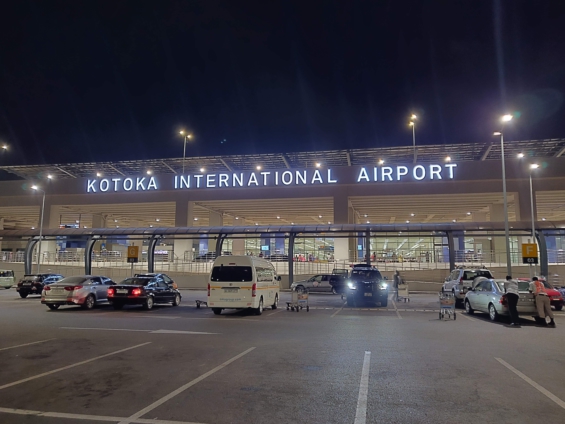We Have Hope For The Economy's Recovery- Deputy Governor Of BoG
The Bank of Ghana has outlined its strategic plans for navigating these turbulent times, as well as expressing optimism about the country's recovery amid one of the most difficult economic crises in decades.
In a recent interview with The Banker, Dr. Maxwell Opoku-Afari, the first deputy governor of the Bank of Ghana, and Kwamina Duker, CEO of the Development Bank Ghana (DBG), highlighted the importance of not letting the crisis go to waste, but rather using it as an opportunity for positive change. Mr. Duker emphasized the potential for behavioral changes and innovative approaches to doing business, stating, "Don't waste a crisis." Dr. Opoku-Afari echoed this sentiment, stressing the need to leverage the crisis for transformative initiatives, emphasizing, "Nobody wants to waste the crisis."
READ ALSO: BoG's 2022 Losses Were Needed To Save Ghana's Economy - BoG Governor
Strategic Financial Moves
According to reports from Reuters, Ghana successfully concluded the first phase of its domestic debt exchange in February, with an impressive 85% participation from eligible bondholders. Subsequently, in September, the country reopened the debt exchange, raising an additional 12.9 billion cedis ($1.1 billion) through local bonds. The International Monetary Fund (IMF) also announced a $3 billion extended credit facility arrangement for Ghana in May 2023, aiming to steer the country back on track after it defaulted on its debts in late 2022. This financial support focuses on addressing immediate economic challenges, stimulating private investment, and fostering growth.
Shop With Us: https://www.etsy.com/shop/SokoMalls
Impact on the Private Sector
Dr. Opoku-Afari acknowledged the impact of debt restructuring on the private sector and noted a temporary slowdown in capital flow. However, he expressed confidence in the recovery, stating, "We are done with the domestic debt restructuring, and we anticipate the external debt restructuring to conclude soon." He further anticipated that as stability returns, commercial banks will increase credit levels to the private sector.
Signs of Recovery
Highlighting signs of recovery in the banking sector during the first half of the year, Dr. Opoku-Afari emphasized the central bank's optimism. He envisioned a positive shift in the banks' approach, with increased lending to the private sector once stability is solidified.
READ ALSO: Exporters Could Face 10-Year Imprisonment For Failing To Return Profits To Ghana - BoG
Achievements and Future Focus
Despite the challenges, Ghana has made significant strides in containing the crisis and achieving economic stability. Dr. Opoku-Afari noted a substantial decrease in inflation, dropping from 54% at the beginning of the year to 35% in November — a remarkable turnaround in just 10 months. Looking ahead, he stressed the importance of consolidating these gains to better prepare for the future.
The outlined strategies and financial support, coupled with the positive outlook from key officials, set a promising trajectory for Ghana's economic recovery. As the country continues to navigate these challenging times, the proactive approach and resilience showcased by its officials may serve as an example of positive transformation, not only for Ghana but for other economies facing similar crises globally.





Comments
Post a Comment